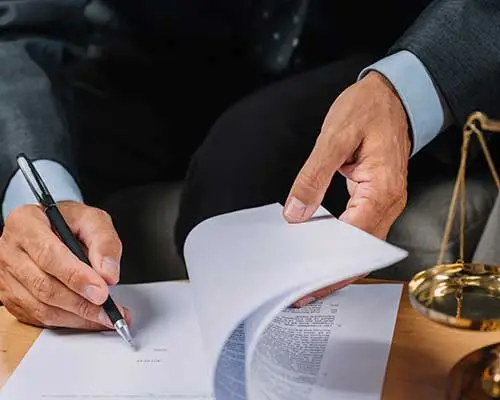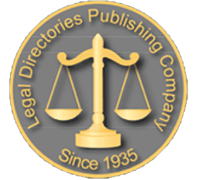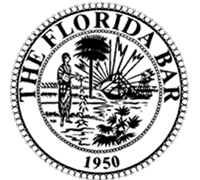5 Signs of Fraud in a Business Partnership & What to Do
Your business is bringing in sales and your revenue looks healthy on paper, but you’re constantly struggling to pay vendors or meet payroll. This frustrating cash-flow problem isn’t just a normal growing pain; it can be a serious red flag. When money seems to disappear between the sales report and the bank account, it’s time to look closer. Unexplained financial shortages are one of the most critical signs of fraud in a business partnership, often pointing to embezzlement or other hidden activities. We’ll explore how to investigate these discrepancies, what other behavioral and documentary warnings to look for, and how to take action before the damage becomes irreversible.
Key Takeaways
- Establish Clear Financial Rules from the Start: A strong partnership agreement is your primary defense. Clearly define each partner’s financial authority, implement controls like separating duties, and create a system of transparency to prevent misconduct before it begins.
- Recognize the Warning Signs in Behavior and Finances: Fraud often starts with subtle changes. Pay close attention to a partner who becomes secretive about finances, unexplained cash shortages despite good sales, or consistently missing documents.
- Consult an Attorney Before Confronting Your Partner: Your first move should be strategic, not emotional. An experienced business litigation attorney can help you preserve evidence, understand your rights under Florida law, and develop a plan to protect your assets without alerting the other party.
What Are the Signs of Partnership Fraud?
Trust is the foundation of any business partnership, but sometimes that trust is broken. Fraud can start small, making it difficult to spot. You might have a gut feeling that something is wrong long before you find concrete proof. Recognizing the warning signs is the first step toward protecting yourself and your business. These signs often fall into three main categories: financial, behavioral, and documentary. Paying attention to inconsistencies in these areas can help you identify potential fraud before it causes irreparable damage to your company.
Spot Financial Red Flags
Your business is bringing in sales, but there’s never enough cash to cover the bills. This is a classic red flag. If you’re struggling to pay vendors or meet payroll despite healthy revenue, it’s time to look closer at the books. Unexplained cash shortages, missing funds, or financial records that just don’t add up are serious warning signs. You might also notice unauthorized withdrawals or payments to unfamiliar companies. These discrepancies aren’t just bookkeeping errors; they can be indicators of embezzlement or other fraudulent activities that require immediate attention from a business litigation attorney. Don’t dismiss these issues as simple cash flow problems.
Notice Behavioral Warning Signs
A sudden change in your partner’s behavior can be just as telling as a financial discrepancy. If your once-open partner is now secretive or defensive about business finances, be wary. Do they get angry or evasive when you ask simple questions about expenses or profits? They might try to block your access to financial documents, company accounts, or even parts of the office you previously shared. Another behavioral red flag is unusual bank activity, such as opening new accounts without your knowledge or making strange transfers. These actions show a clear intent to hide something, and that secrecy is often a cover for fraudulent behavior.
Look for Irregular Documentation
Fraud often leaves a paper trail—or a lack of one. Pay close attention if important financial documents start to go missing, especially records related to cash transactions, expense reports, or payments to specific vendors. While a single lost invoice might be an accident, a consistent pattern of disappearing paperwork is highly suspicious. This is a common tactic used to conceal improper spending or theft. Start gathering and securing any proof you can find, such as bank statements, existing contracts, and invoices. Having clear documentation is critical, and our experienced attorneys can help you understand what to look for and how to preserve it.
How to Identify and Monitor Financial Discrepancies
Trust is the foundation of a business partnership, but that doesn’t mean you should ignore the numbers. Proactive financial monitoring isn’t about suspicion; it’s about good governance and protecting the business you’ve worked so hard to build. By creating transparent systems and regularly checking in on your company’s financial health, you can spot potential issues early and address them before they become catastrophic. Think of it as a routine check-up for your business.
Setting up clear procedures for handling money helps everyone stay accountable. When financial responsibilities are shared and oversight is consistent, it becomes much harder for discrepancies to go unnoticed. This isn’t about micromanaging your partner, but rather about establishing a professional framework that safeguards everyone’s investment. The following steps will help you create a system of checks and balances to keep your business finances clear, accurate, and secure. If you uncover issues that point toward a serious dispute, our business litigation attorneys can help you understand your options.
Track Cash Flow and Unusual Transactions
One of the most telling signs of trouble is a constant cash shortage, even when sales are strong. If your business looks profitable on paper but you’re always struggling to pay vendors or meet payroll, it’s time to take a closer look. Make it a habit to monitor your cash flow statements weekly. Scrutinize bank transactions for anything out of the ordinary, such as payments to unfamiliar vendors, frequent cash withdrawals, or transfers to personal accounts. These could be honest mistakes, but they could also be indicators of something more serious. A consistent and clear understanding of where your money is going is your first line of defense.
Review Expense Reports and Financial Statements
Missing paperwork is a classic red flag. If financial documents like receipts, invoices, or bank statements frequently disappear or are difficult to obtain from your partner, you should be concerned. Schedule time each month to thoroughly review all financial statements and expense reports. Look for gaps in check or invoice numbers, unusually large or vague expenses, and any reimbursements that lack proper documentation. Delays or excuses when you ask for financial information are also warning signs. Maintaining organized and complete records is a cornerstone of a healthy business partnership.
Monitor Access to Business Accounts
It’s a major problem if one partner insists on controlling all the finances and blocks the other from accessing the books. In a healthy partnership, financial information should be an open book. Both partners should have full access to all business bank accounts, credit cards, and accounting software. If your partner resists sharing passwords, fights against hiring an outside accountant, or gets defensive when you ask financial questions, it’s a clear signal that something is wrong. This kind of secrecy prevents accountability and creates an environment where fraud can easily occur.
Implement Regular Financial Oversight
The best way to prevent financial issues is to build a system of strong internal controls from the start. This means establishing clear procedures that promote accountability. For example, you can require two signatures on checks over a certain amount or segregate financial duties so that the person who sends invoices isn’t the same person who deposits payments. You can also strengthen internal controls by scheduling regular reviews with a neutral third-party accountant. These practices create a transparent financial environment that protects the business and both partners from potential misconduct.
What to Do if You Suspect Fraud
Discovering potential fraud in your business partnership can feel like a betrayal, leaving you angry, confused, and unsure of what to do next. Your first instinct might be to confront your partner or take drastic action, but the best approach is a calm and strategic one. Acting on emotion can make a bad situation worse, potentially damaging your case or giving your partner a chance to cover their tracks. Instead, take a deep breath and focus on protecting yourself and the business you’ve worked so hard to build.
The steps you take in the immediate aftermath are critical. Your goal is to gather information, secure your assets, and get professional guidance before making any major decisions. This methodical approach ensures you are operating from a position of strength, with clear evidence and a solid legal strategy. By following a clear plan, you can address the situation effectively while minimizing further risk to your company’s finances and reputation. The following steps will guide you through this difficult process, helping you make informed choices that protect your interests.
Gather and Preserve Critical Evidence
Before you do anything else, your top priority is to discreetly collect and save any evidence of the suspected fraud. This documentation is the foundation of your case and will be essential for any legal action you might take. Start by gathering financial records, including bank statements, credit card statements, invoices, and contracts. Look for any transactions or documents that seem unusual or unauthorized. Don’t forget to save relevant digital communications, such as emails or text messages, that could support your suspicions. Make copies of everything and store them in a secure location that your partner cannot access.
Avoid Confronting Your Partner Directly
As tempting as it may be to confront your partner, it’s crucial to resist the urge. A direct accusation will likely put them on the defensive and could give them an opportunity to destroy evidence, alter records, or move assets. This could make it much harder to prove the fraud later on. Instead of a confrontation, continue to observe and document everything quietly. Your silence is a strategic tool that allows you to build a stronger case without tipping your hand. Once you have gathered sufficient evidence and consulted with an attorney, you will be in a much better position to act decisively.
Consult with Legal and Financial Experts
You don’t have to handle this situation alone. Speaking with a business litigation attorney should be one of your first steps. An experienced lawyer can review your evidence, explain your legal options, and guide you on the best course of action to protect your rights and the business. They can help you understand the complexities of partnership law in Florida and develop a strategy for moving forward. You may also want to consult with a forensic accountant, who can help you trace the missing funds and quantify the full extent of the financial damage.
Secure Your Business Assets and Accounts
While you gather evidence, take immediate steps to protect the company’s remaining assets. If your partnership agreement allows, consider limiting your partner’s access to business bank accounts and credit cards. Change passwords for critical accounts and software systems to prevent further unauthorized activity. It’s also a good time to review and strengthen your company’s internal controls to prevent future fraud. This might include requiring dual signatures on checks over a certain amount or implementing more rigorous financial oversight. These proactive measures can help stop the bleeding and safeguard your business while you determine your next steps.
What Are the Legal Consequences of Partnership Fraud?
Discovering fraud in your partnership is a serious blow, both personally and professionally. Beyond the betrayal, fraudulent actions carry significant legal weight in Florida. The consequences aren’t just a slap on the wrist; they can range from hefty financial penalties to criminal charges and the complete dissolution of your business. Understanding these potential outcomes is the first step toward protecting your rights and your company’s future. If you suspect a partner is acting dishonestly, it’s crucial to know what legal avenues are available to you and the serious repercussions your partner could face for their actions. This isn’t just a business disagreement—it’s a legal matter with defined consequences.
Your Rights Under Florida Partnership Law
Florida law doesn’t leave you to fend for yourself when a partner acts fraudulently. The Florida Revised Uniform Limited Partnership Act outlines the rights and obligations each partner has, creating a legal framework for accountability. If your partner has misrepresented financials, falsified records, or engaged in other deceptive practices, you have the right to take legal action. This can involve suing for damages to compensate for the harm done to you and the business. In severe cases where the fraud has fundamentally damaged the partnership’s ability to operate, you may even have grounds to dissolve the business entirely. These protections ensure that you have a clear path to seek justice.
Potential Criminal Charges and Civil Liability
Partnership fraud can trigger consequences on two separate legal fronts: civil and criminal. On the civil side, you, the defrauded partner, can file a lawsuit to recover financial losses. This could include lost profits, the value of stolen assets, and other damages directly caused by the fraudulent behavior. Separately, the state may pursue criminal charges if the actions meet the threshold for crimes like embezzlement or grand theft. A criminal conviction can lead to severe penalties for the offending partner, including substantial fines and even prison time. This dual threat underscores the gravity of partnership fraud and provides multiple avenues for holding a dishonest partner accountable.
Risks of Financial Loss and Business Disruption
The damage from partnership fraud extends far beyond the initial theft. When one partner misrepresents the company’s financial health or siphons funds, it can lead to a cascade of problems. Decisions are made based on false information, potentially leading to disastrous investments, unpaid vendors, and an inability to make payroll. This instability doesn’t just affect the partners; it puts employees’ jobs at risk and can damage your company’s reputation with clients and suppliers. The disruption can grind operations to a halt, turning a once-thriving business into a financial wreck. The financial loss isn’t just what was stolen—it’s the entire ripple effect on your business’s viability.
Options for Partnership Dissolution and Asset Recovery
When fraud shatters the trust at the core of your partnership, continuing the business may be impossible. In these situations, Florida law allows you to petition the court for a dissolution of the partnership. This is a formal process to legally wind down the business because the fraudulent acts have made it unworkable. Alongside dissolution, you can take legal steps to pursue asset recovery to reclaim what was lost. Through a lawsuit, you can seek a judgment to claw back stolen funds or the value of misappropriated assets. This ensures that the fraudulent partner doesn’t simply walk away with the profits of their deceit.
How to Prevent Fraud in Your Business Partnership
Trust is the foundation of any successful partnership, but it’s smart business to have systems in place that protect everyone involved. Taking proactive steps to prevent fraud isn’t about expecting the worst; it’s about creating a transparent and secure environment where your business can thrive. By establishing clear rules and checks and balances from the start, you can safeguard your assets, maintain a healthy partnership, and focus on growing your company. These preventative measures create a culture of accountability and can deter misconduct before it ever has a chance to take root. Putting in the work upfront can save you from significant financial loss and legal battles down the road.
Establish a Strong Partnership Agreement
Think of a partnership agreement as the rulebook for your business. A well-drafted agreement is your first and best line of defense against potential fraud. This legal document should clearly outline each partner’s roles, responsibilities, and financial duties. It’s essential to specify who has the authority to access company funds, make financial decisions, and sign checks. By creating a clear partnership agreement that details these financial controls, you can limit opportunities for unauthorized transactions. This document also provides a clear roadmap for resolving disputes, which can prevent disagreements from escalating into serious legal issues. An experienced business attorney can help you craft a comprehensive agreement tailored to your specific needs.
Implement Internal Controls and Separate Duties
You wouldn’t give one person the only set of keys to your entire business, and the same principle applies to your finances. Implementing strong internal controls means you don’t place too much financial power in one partner’s hands. A key practice is the segregation of duties. For example, the partner who approves expenses shouldn’t be the same one who writes the checks or reconciles the bank statements. Requiring multiple levels of authorization for significant transactions adds another layer of security. These procedures strengthen your internal control environment and promote accountability at every level, making it much more difficult for fraudulent activity to go unnoticed.
Conduct Regular Audits and Financial Reviews
Regularly checking your company’s financial health is just good business practice. Schedule routine audits and financial reviews, whether they’re conducted by an internal team or an external accountant. These reviews aren’t about pointing fingers; they’re about ensuring accuracy and transparency. Consistent oversight helps you spot discrepancies, unusual patterns, or errors early on, before they become major problems. Proactively testing your internal controls not only acts as a deterrent but also fosters a culture of integrity and ethical conduct throughout your organization. When everyone knows the books are being reviewed, it encourages meticulous record-keeping and honest financial management from all parties.
Create Accountability and Whistleblower Policies
A culture of accountability is one of your strongest assets in fraud prevention. When roles and responsibilities are clearly defined, everyone understands what is expected of them. This clarity makes it easier to identify when someone is acting outside of their authority. It’s also wise to establish a formal whistleblower policy. This gives employees a safe and confidential way to report suspicious activities without fearing retaliation. Encouraging your team to speak up can bring potential issues to light much faster than a financial audit might. An effective policy shows that you take fraud seriously and are committed to protecting the business and its honest employees.
When to Contact a Business Litigation Attorney
Discovering potential fraud in your partnership is a stressful and isolating experience. It’s easy to second-guess yourself or delay action, hoping the situation will resolve on its own. However, when it comes to protecting your business, being proactive is your best defense. Knowing when to bring in a legal professional can make all the difference in the outcome. An experienced attorney can provide a clear path forward, helping you secure your assets and hold the responsible party accountable.
Know When You Need Legal Intervention
The moment you have a credible suspicion that your business partner is committing fraud, it’s time to consider legal intervention. Fraud can quickly drain your company’s finances, tarnish its reputation, and create serious legal trouble. Acting swiftly and strategically is essential. While you might be tempted to wait for absolute proof, waiting too long can cause irreversible damage. If you’ve noticed consistent red flags and your gut tells you something is wrong, seeking legal advice is a crucial first step to understand your rights and protect the business you’ve worked so hard to build.
Work with an Experienced Florida Business Attorney
Navigating a partnership dispute requires specific expertise. You need a lawyer who specializes in Florida business law and litigation and has experience with fraud cases. A specialized attorney can advise you on critical next steps, such as engaging a forensic accountant to uncover financial misconduct, without alerting your partner prematurely. They understand the nuances of state law and can help you build a strong case from the very beginning. Working with the right legal team ensures you avoid common pitfalls and make informed decisions based on sound legal strategy, not emotion.
Understand the Partnership Dispute Process
Once you engage an attorney, they will help you understand your options. The right path forward depends entirely on the specifics of your situation and the severity of the fraud. Your attorney will outline the potential avenues, which could include filing a lawsuit against your partner to recover damages or seeking a court order to prevent them from causing further harm. In some cases, you might request a formal audit of the business’s finances or, if the trust is completely broken, move to dissolve the partnership. An attorney clarifies this process, turning a chaotic situation into a series of manageable steps.
Protect Your Interests During Legal Proceedings
While legal proceedings are underway, your primary focus should be on safeguarding your interests. This starts with gathering and preserving evidence, such as financial records, bank statements, contracts, and invoices. It’s vital that you avoid confronting your partner directly, as this could give them a chance to destroy evidence or hide their activities. An attorney will guide you on how to collect this information properly and securely. They act as your advocate, ensuring every action you take is designed to protect your assets and strengthen your legal position. If you’re facing this difficult situation, you can contact our attorneys to learn how to move forward.
Related Articles
- Partnership Break Ups – Legal Counsel P.A.
- What Does a Partnership Dispute Lawyer Do?
- Why You Need a Business Partnership Dissolution Lawyer
- Why You Need a Partnership Dissolution Agreement Lawyer
Frequently Asked Questions
What’s the difference between a simple financial mistake and actual fraud? The key difference really comes down to intent and pattern. An honest mistake is usually a one-time event, and when you bring it up, your partner is typically open to discussing and correcting it. Fraud, on the other hand, involves a pattern of deliberate deception. You’ll often see secrecy, defensive behavior when you ask questions, and a series of “mistakes” that consistently benefit your partner at the business’s expense.
I don’t have a formal partnership agreement. Does that mean I have no legal options? Not at all. While a strong partnership agreement is always the best-case scenario, its absence doesn’t leave you without protection. In Florida, if you’re operating a business with someone for profit, a legal partnership likely exists even without a written contract. Your rights and your partner’s duties are established by state law. An attorney can help you define the terms of your partnership based on your conduct and communications to build a case.
Should I hire a forensic accountant before I talk to a lawyer? It’s best to consult with a business litigation attorney first. While a forensic accountant is an invaluable expert for tracing funds and quantifying damages, an attorney should direct the overall strategy. Your lawyer can help you engage an accountant in a way that protects the investigation’s findings under attorney-client privilege, ensuring the evidence is collected properly for potential legal action.
If I take legal action against my partner, does that automatically mean our business has to shut down? No, filing a lawsuit doesn’t automatically lead to dissolving the business. Often, the goal of legal action is to recover stolen assets, remove the fraudulent partner, and allow the business to continue operating. Dissolution is a possible outcome, especially if the trust is completely destroyed, but it is not the only one. Your attorney will help you explore all options to find the one that best protects your investment and the company’s future.
What is the single most important first step to take if I suspect fraud? Before you do anything else, you must discreetly gather and secure any evidence you can find. This means collecting bank statements, emails, invoices, or any other documents that support your suspicions. Make copies and store them in a safe place your partner cannot access. Resisting the urge to confront them is critical, as a premature accusation could give them the chance to destroy evidence and cover their tracks.

















